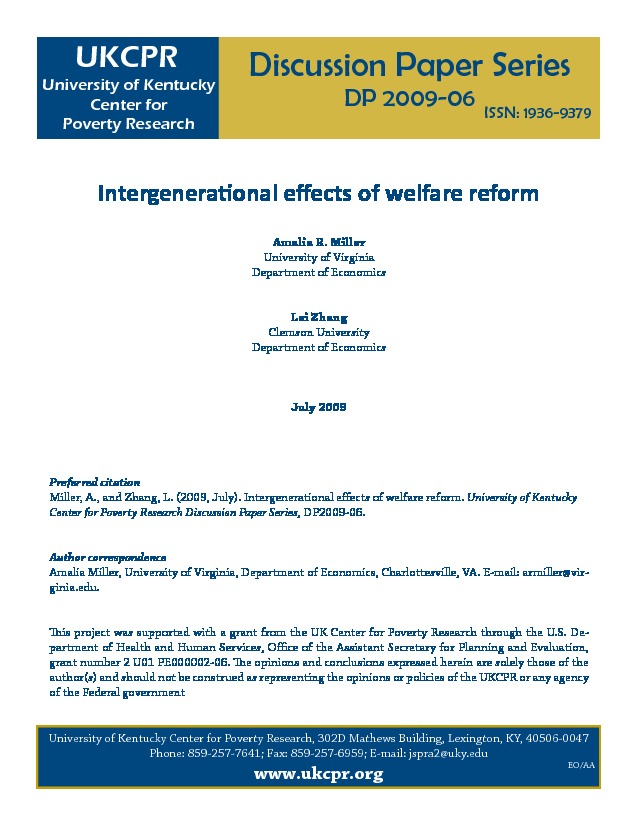This paper estimates the impact of the fundamental welfare reforms of the 1990s on the educational attainment of children in low-income families. Using data from national surveys of individuals and administrative records of school districts spanning the period from the early 1990s to the mid 2000s, we estimate the net effects of welfare reform in a difference-indifferences framework. We find that low- and higher-income children experience statistically indistinguishable time trends in outcomes prior to reform, whereas in sharp contrast, in the period following welfare reform, low-income children experience significant and growing relative gains in educational attainment. The income gaps in school enrollment and 7-12th grade drop-out rates narrow by more than 20% in the years following welfare reform. These findings are robust to changing the definition of low- and higher-income groups and to controlling for contemporaneous economic and policy changes.
Research
Welfare ReformPDF Thumbnail
